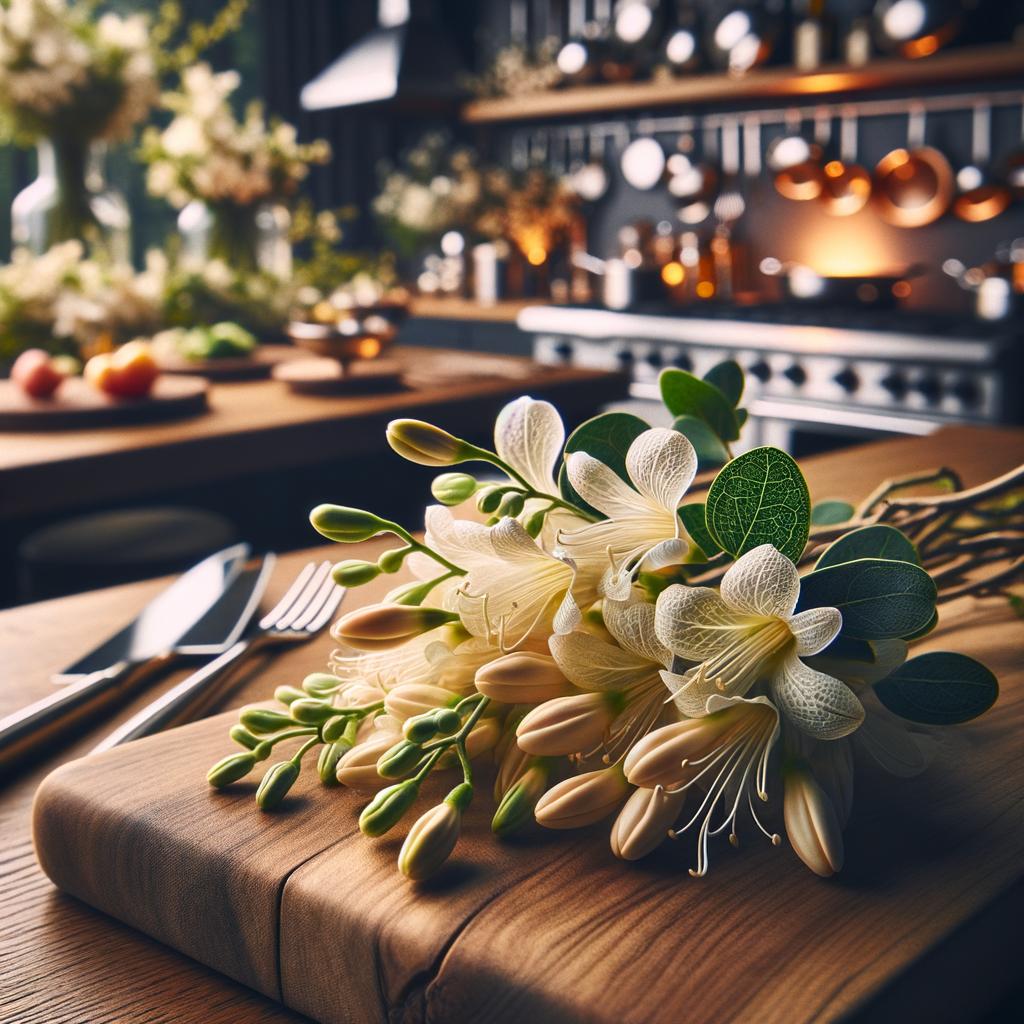Honeysuckle Flowers

Description
The honeysuckle flower, a captivating ingredient in the culinary world, is a delightful gem that blooms from the honeysuckle vine. This enchanting flower is a spectacle of beauty, boasting a tubular shape that unfurls into a delicate, bell-like blossom. Its colors range from a pristine white to a soft yellow, and then to a vibrant orange or pink as it matures. The texture of the honeysuckle flower is soft and velvety, much like a whisper against the skin. Its flavor profile is distinct, with a sweet nectar that is subtly floral, evoking the warmth and brightness of a midsummer's day. What sets the honeysuckle apart from other edible flowers is its dual purpose: both the flower and the nectar within can be used in culinary creations, offering a versatile and delightful ingredient for chefs and food lovers alike.
Primary Uses
Honeysuckle flowers are commonly used to infuse a sweet, floral essence into a variety of dishes and beverages. They are a key component in many Asian cuisines, particularly in Chinese dishes where they are often used in soups, teas, and desserts. In the Western world, they are frequently used to create a refreshing summer drink known as honeysuckle cordial. The flowers can also be used to make honeysuckle jelly, a delightful spread that captures the essence of summer in a jar. Beyond its culinary uses, honeysuckle also holds medicinal properties. It has been used in traditional medicine to treat ailments like sore throats and fevers, and is cherished for its supposed detoxifying properties.
History
The honeysuckle flower has a rich and romantic history, dating back to ancient times. It is believed to have originated in Asia, and its use in Chinese medicine is well-documented. The flower's name, "honeysuckle," is derived from the sweet nectar that can be sucked from the base of the blossom, a pastime beloved by children and adults alike for centuries. Over time, the honeysuckle vine has spread across the world, and its use in cooking and medicine has evolved with each culture it touched. There are many folklore tales associated with honeysuckle, with one of the most popular being that its fragrance can induce dreams of passion.
Nutritional Information
Honeysuckle flowers hold a wealth of nutritional benefits. They are rich in antioxidants, which play a key role in protecting the body against aging and diseases. They also contain a significant amount of vitamin C, a vital nutrient that boosts the immune system and promotes skin health. Additionally, they have anti-inflammatory properties that can help soothe various health conditions. Compared to other edible flowers, honeysuckle offers a unique blend of sweetness and nutritional benefits, making it a delightful and healthful addition to any dish.

